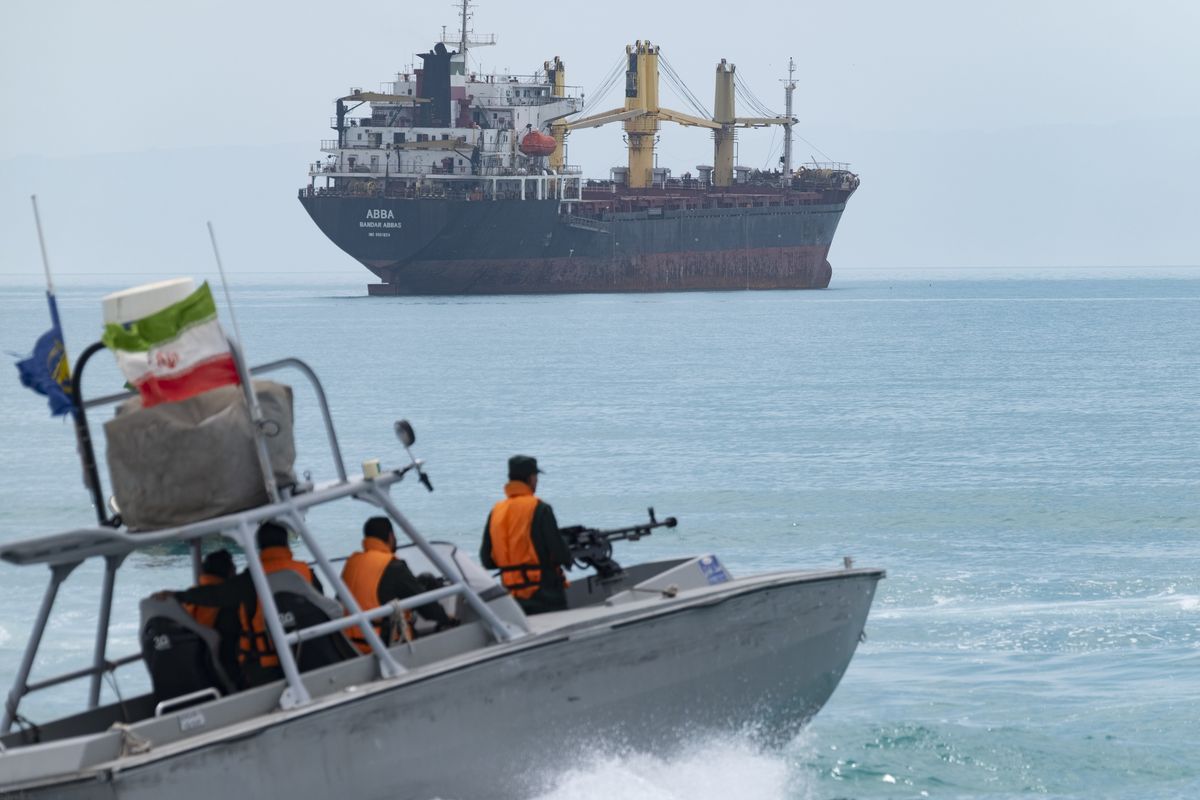Although relations between Egypt and Israel have often been referred to as a “cold peace,” the emergence of mutual security threats over the past few years has facilitated a growing partnership between the former enemies. In fact, since Egyptian President Abdel Fatah el-Sisi assumed office in June 2014, many foreign policy experts believe that Egyptian-Israeli relations have never been better.
“Egypt and Israel are probably closer now for any number of reasons than they have been at any time since the peace treaty was signed in 1979,” explains Aaron David Miller, Vice President for New Initiatives at the Woodrow Wilson International Center and an advisor to several secretaries of state on Arab-Israeli negotiations.
Collaboration between Egypt and Israel has centered on security and intelligence sharing, as both countries aim to clamp down on the Islamic State (ISIS) and other militant groups operating in the Sinai Peninsula. In April, Deputy Chief of Staff of the Israeli Defense Forces, Major General Yair Golan, stated that Israeli was enjoying an “unprecedented level of cooperation,” mainly regarding intelligence, with Egypt and Jordan.
Key to the strengthening of Egypt-Israel ties has been the solid relationship between Sisi and Israeli Prime Minister Benjamin Netanyahu, which “is probably as good as it’s ever been between heads of state of the two countries since relations were established in 1979,” says Perry Cammack, Cipher Brief expert and a fellow in the Middle East Program at the Carnegie Endowment for International Peace.
Conversations between the two leaders may even be a regular occurrence. “Press reports suggest that Israeli Prime Minister Benjamin Netanyahu and Egyptian President Sisi talk frequently—some articles even say as much as once a week,” says David Schenker, Cipher Brief expert and Director of the Program on Arab Politics at the Washington Institute for Near East Policy.
Furthermore, Sisi’s crackdown on Egypt’s Muslim Brotherhood as well as his public disdain for Hamas, which bills itself as the Muslim Brotherhood’s offshoot in the Gaza Strip, has strongly resonated with the Israeli leadership.
Experts also suggest that the Obama Administration’s Middle East policies may have unintentionally brought the two countries closer together. “The Egyptian military was not happy with what they believed to be the inclusiveness and openness to political Islam with [former Egyptian President Mohammad Morsi’s] government, and the Obama Administration has been wrestling with the Israelis on any number of issues for the past several years,” says Miller. “That has created an indirect community of interests.”
As part of the joint effort to combat militants in the Sinai, Israel granted Egypt permission to increase its troop presences in the Sinai Peninsula beyond the limits established in the 1979 peace agreement – another sign of the growing cooperation between the two countries. According to the peace treaty, the Sinai was designated as a demilitarized zone, and both countries agreed that the Multinational Force & Observers (MFO), an independent organization established by the Egypt, Israel, and the U.S., would be charged with peacekeeping responsibilities in the area. Each country must approve the deployment of additional military forces on either side of the border.
“The fact that Egypt has had as much latitude as it has in fighting the Islamic State and other groups in the Sinai without drawing Israeli’s ire, speaks volumes to the level of coordination that is presumably happening behind the scenes,” explains Cammack. “We can assume based on those kinds of data points that it’s probably quite significant, given both countries’ shared animosity towards Hamas and ISIS, as well as other actors operating in the Sinai and the Gaza Strip,” he continues.
The Islamic State’s (ISIS) Amaq news agency reported earlier this week that the Israeli Air Force struck three ISIS targets in the Sinai, killing at least one terrorist. Such actions demonstrate that the two sides are communicating and coordinating much more than meets the public eye.
However, despite the recent uptick in Egyptian-Israeli security cooperation and intelligence sharing, progress on the economic and cultural fronts remains stagnant. Trade between the two nations has been limited, while feelings of animosity towards Israel continue to permeate Egyptian society.
“Although official relations have improved, that is not true at the people-to-people level or even in other parts of the government,” says Michele Dunne, Director of the Middle East Program at the Carnegie Endowment for International Peace. “Anti-Israel (and anti-American) material continues to appear in Egypt’s state-run media as well as privately owned media.”
Israel and Egypt represent the largest recipients of U.S. foreign military aid, with Israeli receiving approximately $3 billion annually and Egypt $1.5 billion. In September, the U.S. and Israel agreed to a record new package of more than $38 billion in U.S. military aid to Israel over the course of the next ten years.
President Barack Obama has had a contentious relationship with Israeli Prime Minister Benjamin Netanyahu, and the administration has been critical of Sisi’s crackdowns on opposition groups and the media. Those dynamics are likely to change with the incoming U.S. administration.
President-elect Donald Trump has referred to Sisi as “a fantastic guy” and has been very supportive of Netanyahu. But he has also openly stated his intention to move the American embassy in Israel to Jerusalem, an act that is opposed in the Arab world and is likely to cause friction between Egypt and Israel. Nonetheless, with both countries focused on battling common enemies, Egypt-Israeli security cooperation will continue to serve as the foundational basis of their relationship for the foreseeable future.
Bennett Seftel is deputy director of editorial at The Cipher Brief. Follow him on Twitter @BennettSeftel.












